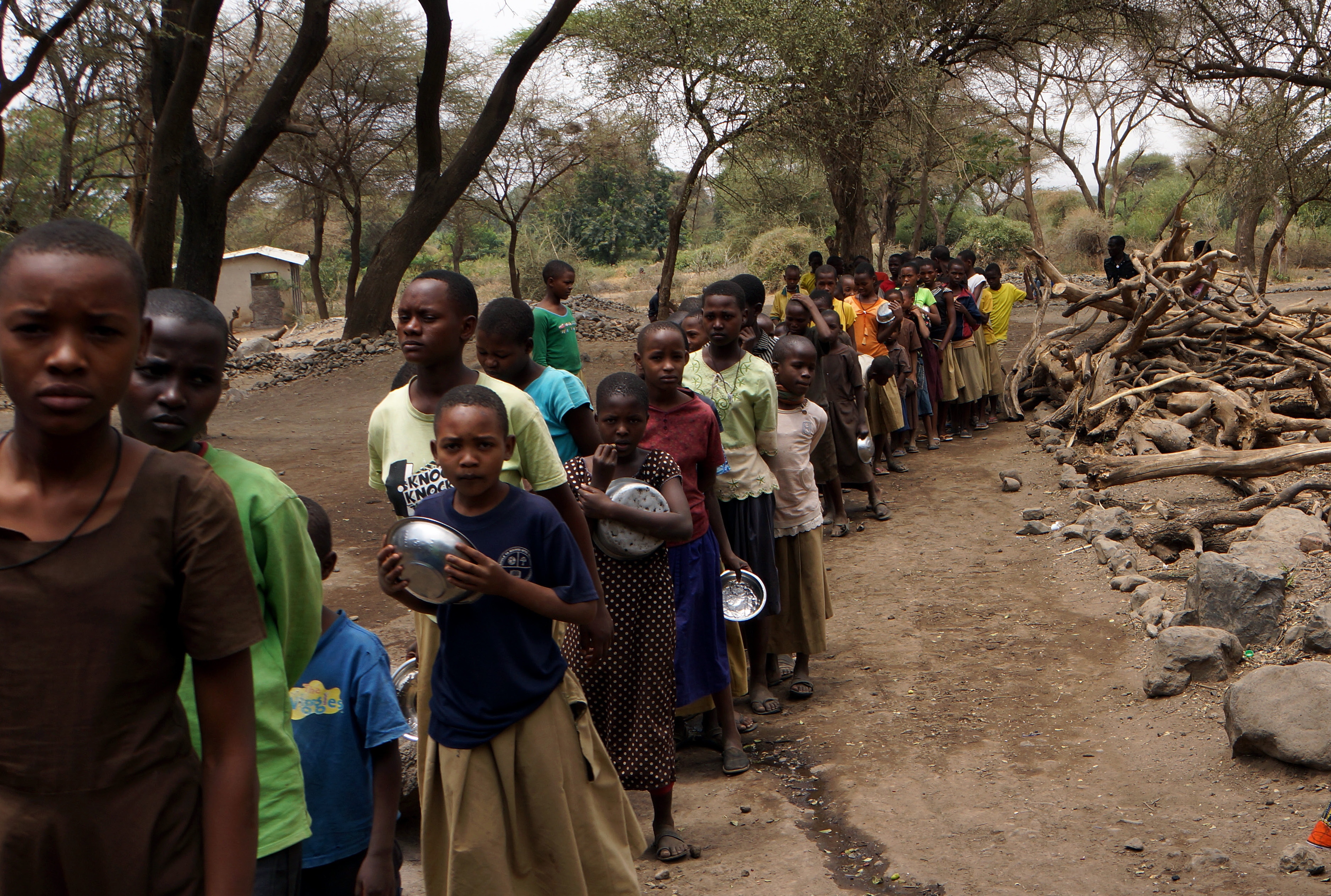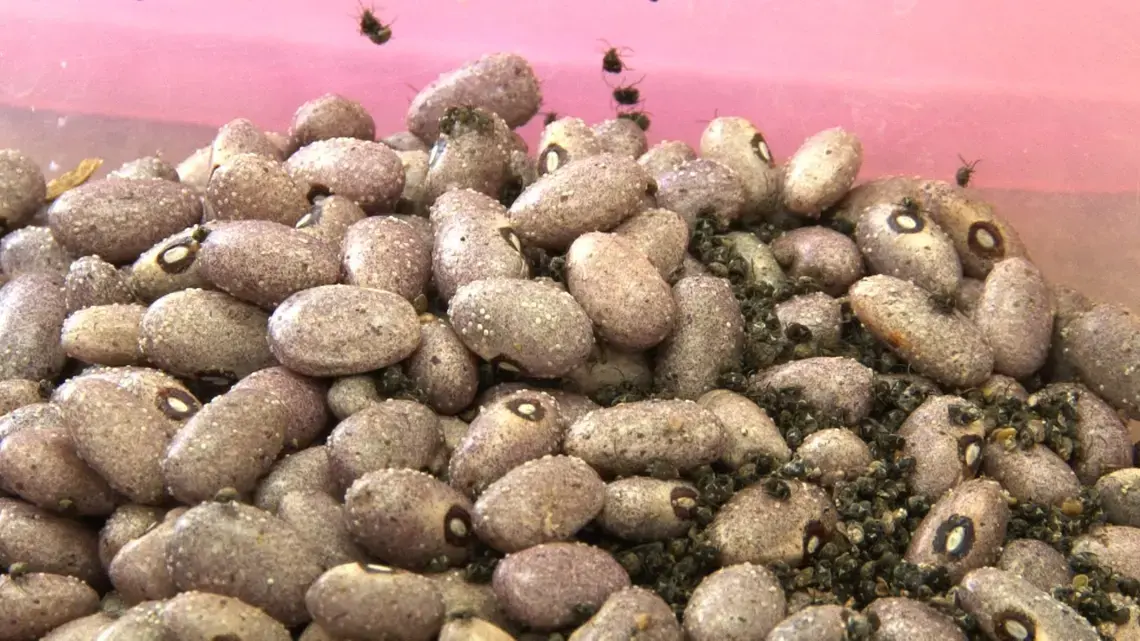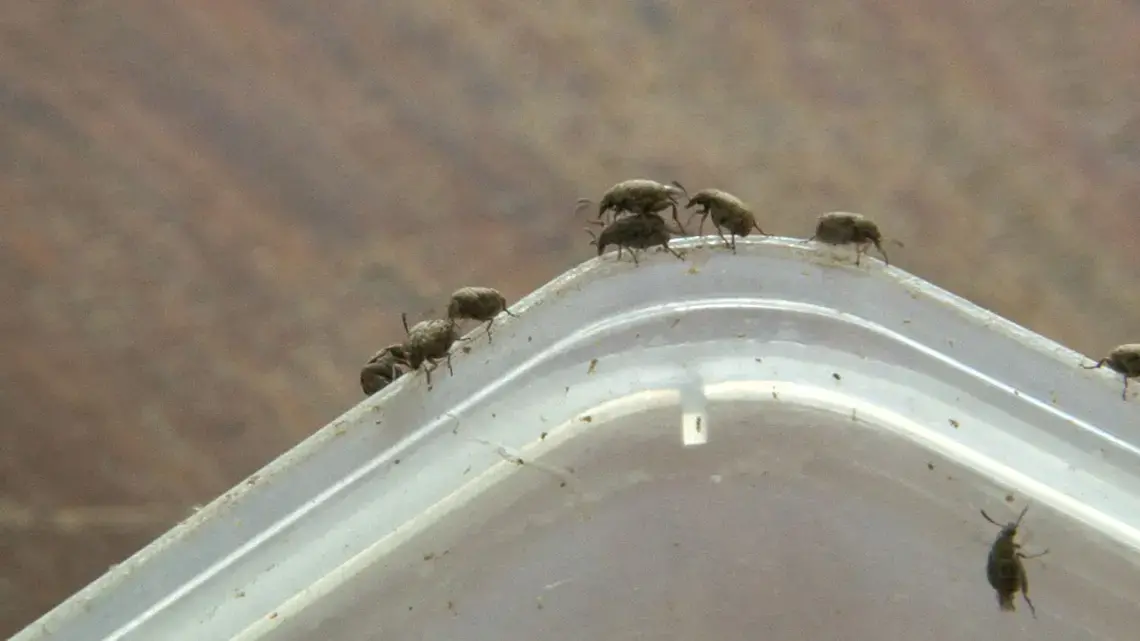MOROGORO, Tanzania — Beans are known worldwide as an inexpensive source of protein and other nutrients. In Tanzania, though, much of that nutrition has been going to bugs rather than to people.
Tanzanian farmers have been losing nearly half their bean harvests to the insects commonly known as weevils. And scientists are racing to develop beans that can resist the destructive pests.
Tanzania's struggle against the weevil is just one chapter in the story of the tension between farmers and the ever-evolving pests that attack crops in the field and after harvest. It is a serious challenge to food security across Africa and around the world.
One person meeting that challenge is Paul Kusolwa, who coordinates the African Seed Health Centre at Sokoine University of Agriculture. In an interview, he outlined efforts to fight the weevils, which scientists call bruchids.
Developing resistance
One effort involves developing weevil-resistant bean varieties. Kusolwa and other scientists have searched for plants that inhibit the weevils' ability to reproduce in beans. Essentially, it is a search for plant proteins that will be fine for people to eat but not for weevils.
"By breeding that resistance into common bean plants, they can extend the time it takes for the young weevils to emerge. And when they do come out, they are weak and more easily destroyed," Kusolwa said.
It has not been a simple search. Unfortunately, the most popular bean varieties — soybeans, yellow beans, red beans and round red beans — also are the beans favored by the weevils.
A first step was to identify beans that are preferred by local farmers and their customers. This was complicated in a country as large and ethnically diverse as Tanzania where dozens of different tribal languages are spoken.
Different villages had different names for the same bean, according to a report on the website of the U.S.-based McKnight Foundation, which helped fund the research.
"A variety Kigoma was also named as soya njano, njano golori, yeboyebo and soworo depending on location and ethnicity," the researchers reported.
Different farmers also used different names to identify the insects that were attacking their beans.
Eventually, the scientists sorted it all out and began developing varieties.
Botanicals in pesticides
Scientists also are developing botanical pesticides in a bid to reduce the use of chemicals farmers spread to fight the weevils.
"This is a food that goes straight to the table," Kusolwa said. "Because consumers are likely not to be aware (of the chemicals) they wash their beans very lightly, and they end up eating some residues of the chemicals."
The scientists have searched through natural plants near several Tanzanian villages to come up with commonly available botanical ingredients.
Here they encountered another cultural complication. Some residents of remote regions didn't want to collect promising botanicals in the wild because that was seen as the work of witch doctors, the researchers reported.
Leaders of those villages reassured the residents, Kusolwa said, and the work was done.
Farmer approval
Now the research has support from farmers. Joseph Mwampashi, from Tanzania's southern highlands, applauded the idea of using botanicals. They are cheap and readily available, he said, in addition to being safe to eat.
If Mwampashi has his way, the scientists will extend their search for botanicals from only a few villages to every part of Tanzania where beans are grown.
With support from farmers, Kusolwa and his team have every encouragement for developing friendly and affordable pest management systems. Still, Kusolwa said it may be another two years before resistant beans are available to farmers.
What is time consuming is the classic challenge plant breeders face worldwide when they introduce traits in a common crop. The new varieties need far more than weevil resistance. They must match consumer taste and cooking habits. And they must thrive in the local environments where they will be grown.
Weevils go to market
Traders in Tanzanian markets share the farmers' frustration over the weevils. The insects destroy beans in storage.
Sagasaga Ramadhan, a trader at Morogoro Market, said the pests can destroy everything, and he had little choice but to treat stored beans with costly chemicals.
However, not everyone welcomes weevil-resistant beans. Women who work in the marketplace to sort out unwanted beans from the clean ones have a different perspective. They've been able to take damaged beans home for family meals, so they are happy with the status quo.
Nyamlanzi Musa, one of the bean sorters, said "weevils are destructive, but we are happy with them as we get some affected beans from our boss."
Sophia Abdallah, another sorter, said "How could we survive without presence of weevils and other pest affect(ing) beans? . . . Let them survive for our survival."








































